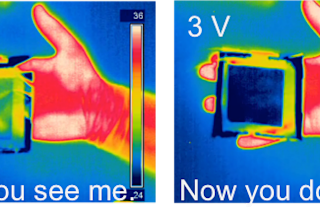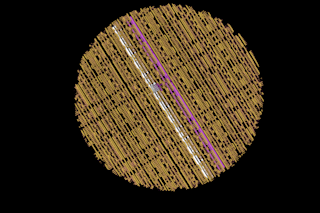The smallest voltmeter in the world has produced a shocking revelation: Lurking deep inside an ordinary cell are electric fields strong enough to cause a bolt of lightning.
While it has long been gospel that cell membranes contain strong electric fields, researchers have generally assumed that 99.9 percent of a cell’s volume was electrically dormant. But when University of Michigan biophysical chemist Raoul Kopelman, the tiny voltmeter’s inventor, flooded rat brain cells with the devices, he detected fields as strong as 15 million volts per meter throughout.
This is the first time the voltmeter has been used in a study, and its potential is as exciting as Kopelman’s find. It is roughly one-thousandth the size of any other voltmeter; thousands can fit in a single cell and still take up only one-millionth of the cell’s volume. The device is filled with voltage-sensitive dye that gives off green to red light ...














